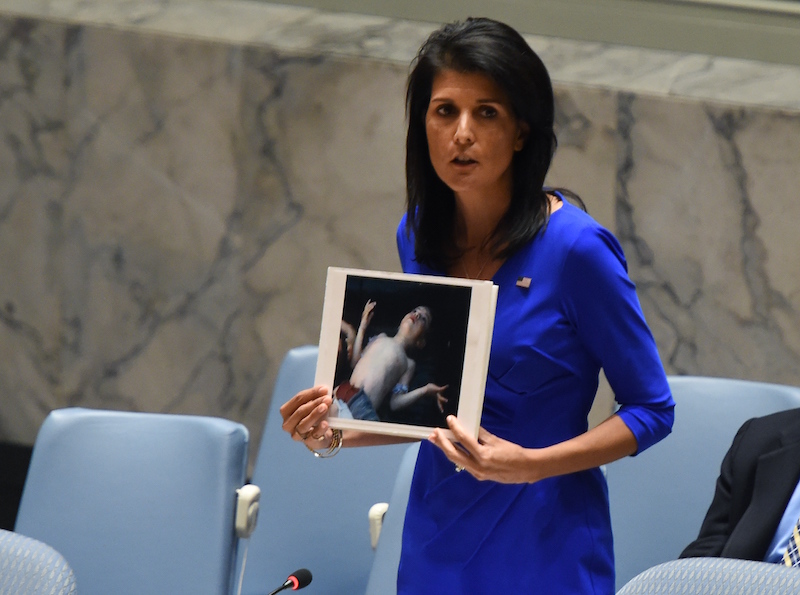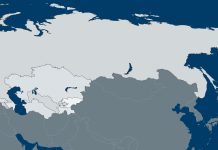By Jacob L. Shapiro
Yesterday Geopolitical Futures hosted its first conference, “The Next Four Years: The Role of the United States in the World.” Eighty attendees gathered on the second floor of the Army and Navy Club in Washington to listen to GPF analysts and guest speakers discuss the world. Global events cooperated with the timing of the conference in ways we could not have expected. On Monday, a bomb exploded in a St. Petersburg subway. The night before the conference, the news focused on a deadly chemical weapons attack in Syria and yet another missile launch by North Korea. Today, President Donald Trump will hold the most important meeting of his presidency to date, as he hosts Chinese President Xi Jinping. The juxtaposition of these events with our conference lent the discussions an extra sense of urgency.
It is not lost on me that this Reality Check is self-referential. Public statements from conferences and media events often make waves across the world, and one of our jobs is to parse through the empty things people say just to make headlines and explain the underlying geopolitics driving world events. It is strange for me as an analyst to be on the other end of this. I don’t mean to share some of the insights from the conference as if they should be considered front-page news. Instead of recapping the play-by-play, I hope that applying some of the conference’s general themes to recent events will be valuable to our readers.
Let’s begin with the chemical weapons attack in Syria. Chemical weapons are crude and inefficient weapons. They are also dangerous for the army or group that uses them because the wind must be blowing in the right direction to ensure that chemicals are not blown back toward those who released them. The fear and terror caused by the mention of chemical weapons is far beyond their actual ability to kill. The United Nations estimated last year that over 400,000 people have died in the Syrian civil war, and millions more have been displaced. The deaths of more than 70 people in Syria are tragic, but they do not represent a fundamental change in the situation. The war will continue, and the use of chemical weapons will be a footnote to whatever emerges in Syria in the years to come.

U.S. Ambassador to the U.N. Nikki Haley holds photos of victims as she speaks at the U.N. Security Council, which met in an emergency session on April 5, 2017, about the suspected deadly chemical attack that killed civilians, including children, in Syria. TIMOTHY A. CLARY/AFP/Getty Images
Former President Barack Obama said the use of chemical weapons was a “red line,” but the administration didn’t follow through with this threat, which crippled Obama’s credibility in foreign relations. Trump has condemned the use of chemical weapons and has said he’s changing his mind on Syrian President Bashar al-Assad. But what that means in terms of action is limited. On the conference’s Middle East panel, we discussed the limits of U.S. power. The U.S. is a global superpower, but it is not omnipotent. It reacted to 9/11 by charging into the Muslim world. As George Friedman said at the conference, the U.S. responded with its “Pearl Harbor” reactions. The U.S. is learning that to be concerned with everything is to be concerned with nothing. Pacifying the Muslim world is not in the U.S.’ capability. The U.S. is looking to support Muslim allies who can engage in that fight. The use of chemical weapons shines a spotlight on the urgency of the problem, but does not change its contour.
Pivoting from the Middle East to Asia, U.S.-China relations have also been an important issue this week. Trump came into office promising to label Beijing a currency manipulator and to be tough on trade with China. But many forget that Obama was already tough on trade with China, and that a U.S. president’s ability to alter trade relationships is limited. Moreover, even if Trump can place restrictions on imports from China, this will be more harmful than beneficial to the U.S. middle class because it will cause prices of consumer goods to rise. Therefore, Trump’s hands are tied. U.S.-China relations are also inextricably linked to North Korea. Trump did not expect the North Korean situation to be as serious as it is. It is reaching an unacceptable level for the United States. The issue is not the missile tests, but the possibility that North Korea has advanced from a nuclear weapons program to a deliverable nuclear weapon.
The U.S. and China have been dancing around North Korea for a while. China likes to use North Korea as a diplomatic chip in its relationship with the U.S. This is progressing beyond the bounds of diplomacy for the U.S. The threat assessment is changing. Even the small chance that North Korea is developing a nuclear weapon and that its regime is not just crazy for effect, but crazy by nature, can no longer be dismissed. For the U.S., North Korea is fast becoming the most important issue in its dealings with China. For China, ensuring a cohesive relationship is key, as Xi tries to maintain stability in the country ahead of the National Congress in the fall. For the U.S., the cost of stability in the U.S.-China relationship will be China working toward a real and verifiable solution of the North Korea crisis.
Then, of course, there is Russia. Our sessions on Europe and Russia were some of the most impassioned. The recent attack highlights the main issues facing Russia: its economic crisis and the attendant social instability. The Russian view of the world is that the West is continually encroaching on Russia’s sphere of influence. The West sees Russia as more powerful than it is, with the ability to influence the U.S. election and elevate Marine Le Pen to the French presidency.
The fundamental reality is that Russia is in economic crisis, and the first signs of this crisis morphing into a political one are beginning to emerge. Europe has economic and political crises of its own. The European Union is still struggling with the effects of the 2008 financial crisis. Almost nine years later, the divergence between Europe’s north and south, and east and west is stark. Meanwhile, the United Kingdom, which trades more with countries outside the EU than in it, recently triggered Article 50 and began the process of leaving the bloc.
On the horizon are two other key issues. Germany is still pushing for austerity, even though the Greeks have had enough. Lurking behind this is the Italian banking crisis, which we identified in our 2016 forecast. When GPF began writing about this banking crisis, the reaction from many was incredulous. The reaction now is agreement that a banking crisis in the EU’s third largest economy would be disastrous and could have dire consequences for the EU. The issue has moved from the question of the European Union, whose directives are already being ignored, to the re-emergence of history in Europe. As elections take place in France and Germany, these are the issues to keep in mind.
In an ideal world, we could gather all our subscribers in one room and talk to them. GPF views its readers not just as consumers of our products but as our interlocutors; many of you write to us every day with your views. Our favorite letters are the ones where you tell us we are wrong or that we have missed something. The life of the analyst is solitary; so much of it is spent thinking about the meaning of obscure events, waking up at 3 a.m. with the sudden, sinking feeling that you have missed something of supreme importance. I want to encourage all our readers to participate in this project with us. We are always reading, and we reply to everything we can. Technology has many downsides, but the ability to be in contact with you all is a redeeming quality.








 The Geopolitics of the American President
The Geopolitics of the American President